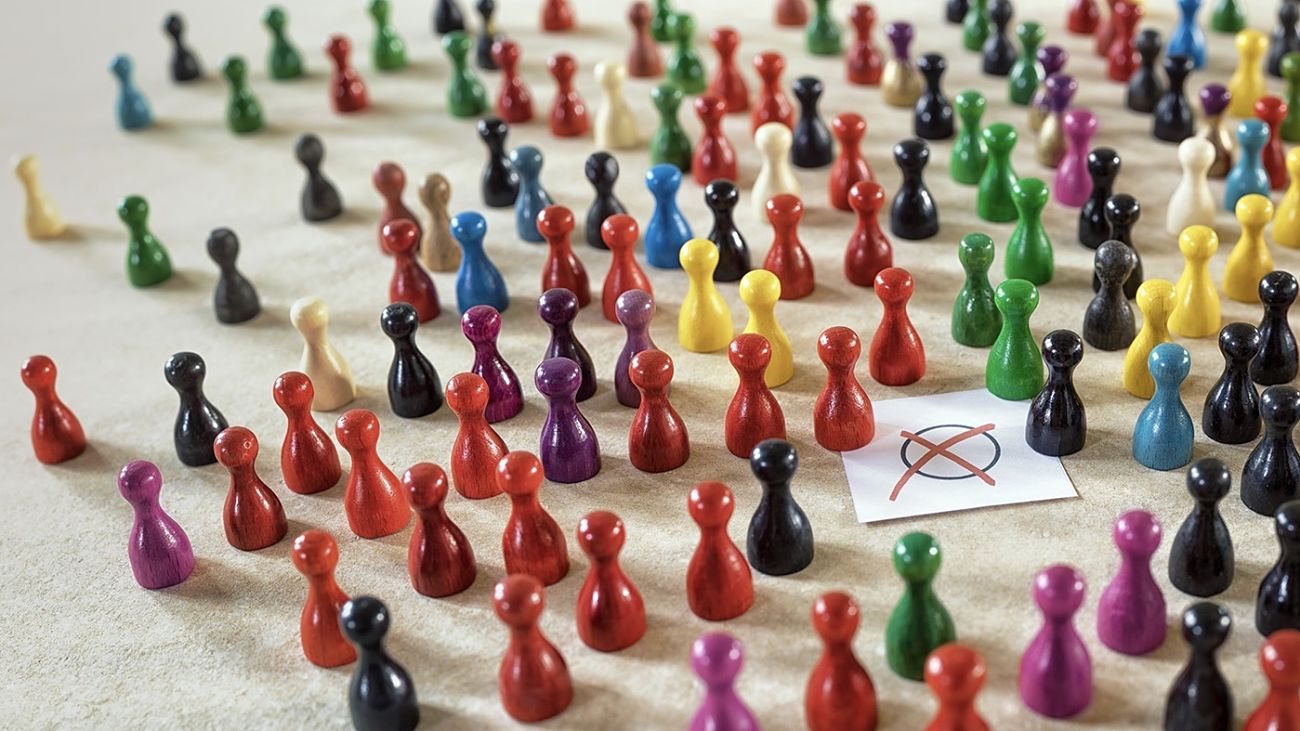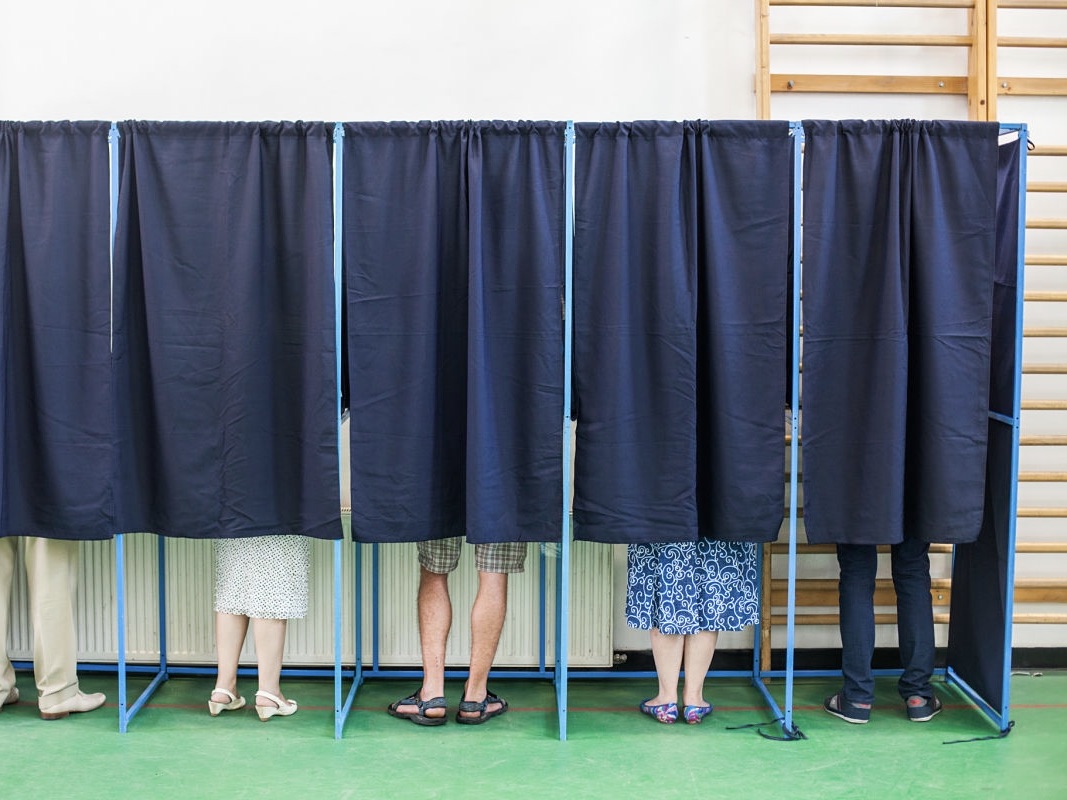
© Ingo Bartussek / AdobeStock
Is our Democracy in Danger?
People often speak of a "crisis within democracy" at the moment. But is that really the case?
The political scientist Philip Manow has dealt with populism just as much as he has dealt with the basic aspects of democracy. His main interest lies with the question of how democracy is developing and what puts it in danger. His summary: It is not democracy that is being put in danger externally, but it is endangering itself. Thanks to continuing “democratization”, democracy is questioning its own institutions. Manow is a professor of political science at the University of Bremen and head of the Comparative Political Economy Working Group at SOCIUM. Christina Selzer asked him a few questions.
You champion the theory that we are currently experiencing both the “democratization” and also the “un-democratization” of democracy. That sound paradox. What do you mean with the theory?
I mean that we are all talking of the endangering of democracy – thus un-democratization – and that we often connect it to certain names, Trump, Modi, Erdogan, Putin and so on, but also look over many aspects. Firstly, that what was generally stated after 1990 is still valid – there is no legitimate alternative to democracy as the reigning political form today. Amongst other things, this leads to new leaders all referring to ‘the one’ democracy. Secondly, that democracy factually and institutionally reigns so absolute today – at least when seen historically - as has not been the case since the French Revolution in 1789. And thirdly, that we are experiencing an extraordinary democratization of democracy in terms of the new participation and communication opportunities. Everyone can take part in political discourse. Collective political action is easier and ‘cheaper’ to organize today than it ever has been. That is why I have the theory that our perception of a democratic crisis actually points more to a crisis of the accepted processes of political representation and that this representation crisis can be mainly explained by the current democratization of democracy.
Orban, Trump, Erdogan – do these names not stand for a great crisis within democracy?
As previously mentioned, Orban and Trump rather stand for a representation crisis than a democratic crisis in my opinion. I am aware that that is a controversial assessment with which most people would not agree. I do however think that neither the majority of the Hungarians, nor the US Americans are in favor of being politically incapacitated in the future. Abolishing democracy is not a political project that will command majority backing and we will not see a violent coup – neither in the USA, nor Hungary. For now, Trump and Orban are democratically legitimate - Orban has even been elected repeatedly. That both of them are following a populistic strategy that continually plays with the constitutional boundaries of democracy does not contradict that fact. In Erdogan’s case, the situation is slightly different, especially in terms of the pursuit of political opponents – but maybe we should remember that the significant decisions in Turkey were dependent on a military council up until recently. Erdogan’s political party – AKP – has certainly democratized Turkey, even if we are observing a regression towards autocratic behavior.

© Philip Manow
Outsiders, for example Trump, now have a chance due to party crises and changes in media. Is there a danger for democracy that is created by democracy itself?
Yes – at least that is one of the main theories in my book. A democratic democracy is not automatically a better one, and definitely not a better functioning democracy. Democracy generally needs regulated processes – democratic impulse must be moved, moderated, and channeled in the right direction. In the second half of the 20th century, this was carried out by parties. Their crises are thus turning into a crisis of representative democracy.
You say that part of democracy is the uncertainty of whether we are even living in a democracy. Is there a clearly defined line between democracy and non-democracy?
In terms of a minimalistic understanding of democracy there is a very clear line, which is overstepped when an officeholder, who loses a (fair) election, does not vacate the role. The other scenario is obviously when the elections are not fair from the beginning on. The problem is that we only know this after the fact. Therefore, democratic uncertainty is a constant aspect of democracy (and obviously not of a dictatorship where there is no uncertainty - you know that the person in power does not want to and will not bow down to the majority).
Populism is a challenge for democracies: The reference to a homogenous group paired with criticism of the apparent or actually corrupt elites – is such populism not actually un-democratic in itself?
I don’t think so. A great deal is dependent on the term ‘homogenous’. If some form of ethnic nationalism is meant by the term, that would be a step away from the democratic principle of equality and would be un-democratic. If, however, it refers to a collective ‘we’, which is aimed at the members of a political society, thus the citizens, then it is not. A great deal of the current political discourse naturally plays with the gray areas that inevitably develop. In my opinion, the defendants of democracy should ask themselves why this discourse currently captivates, instead of continually voicing sweeping excommunications.
When will populism turn into a danger for democracy? Is it not being taken seriously enough or are we giving the topic too much attention?
In the book I argue for the slightly heretical theory that populism is not the actual problem of – representative – democracy but rather that is only serves to show us that there is a problem. We shouldn’t continually mix up cause and effect, even if it is very tempting for those who have found a comfortable spot within the status quo. I suggest that we should not always deal with the effects, thus with the populists, but rather with the causes: Why does representative democracy no longer function as it did between 1950 and, let’s say, 1990?
The new participation opportunities – citizen initiatives, petitions, referendums – can push democratic institutions, such as parties and nations, into a crisis. Does that mean that there can be “too much” democracy?
Yes. If democracy is to function, it requires simple and generalizable universal procedures: namely elections. And functioning organizations that make structured offers to the voters in said elections. A thousand town hall meetings cannot replace that.

© bizoo_n / AdobeStock
Does the internet, or rather social media, spell the end of parties?
Probably not the end. But they feel confronted by enormous challenges and their original hegemonic position is – maybe irreversibly – gone. Many aspects of political processes and political communication are no longer running via them but rather via more fluid, ephemeral forms of collective political action, via spontaneous movements, and via an entirely uncontrolled, unmoderated discourse on the internet. The parties have been condemned to react relatively helplessly to these developments – at least up until now.
Philip Manow’s book (Un-)Democratising Democracy was published this year.